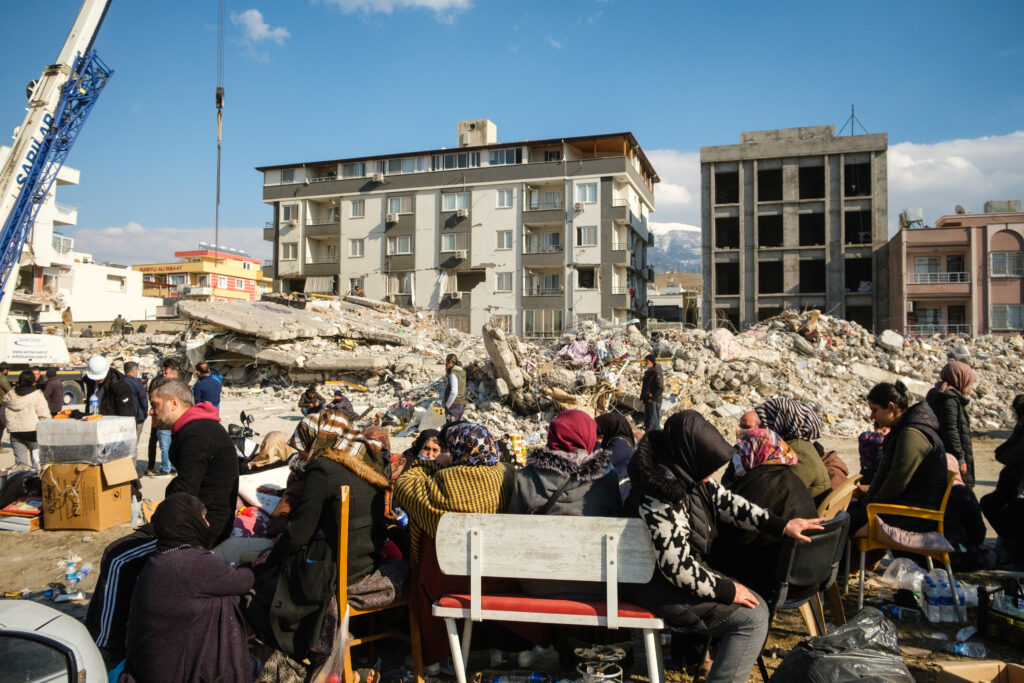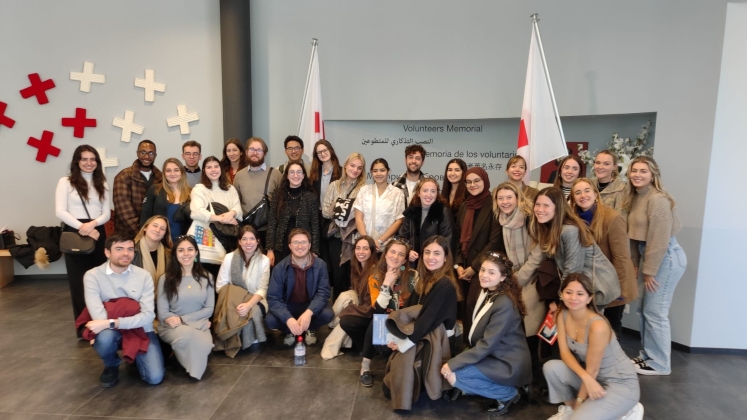Professor Elliott Green explores the experience of other post-colonial states to show that the idea of a Jewish nation-state is an antiquated idea not fit for purpose in the contemporary world.
The creation of the state of Israel took place in 1948, three years after the end of World War II, achieving the end goal of more than a half century of Zionists striving for a Jewish state in Palestine. Zionism, as conceived by European Jews like Theodor Herzl, was grounded in the 19th century nationalist principle that every people or nation should have its own state. This ideology also heavily influenced the creation of new nation-states in eastern Europe after World War I along ethnic/linguistic lines as well as the partition of India along religious lines in 1947. In all these cases major international powers attempted to delineate new states that were as ethnically or religiously homogenous as possible.
This nationalist principle has shaped the world in which we live and is the paradigm through which many people understand development and modern state formation. According to this argument, the three exceptional cases of Eastern European multi-national states, namely Czechoslovakia, the Soviet Union and Yugoslavia, broke up because they were doomed attempts to bring together disparate peoples, while the big economic success stories of the past century like South Korea and Japan have done well because of their cultural homogeneity. The obvious lesson from these examples for the Israel/Palestine problem is a two-state solution, with one a Jewish state and the other an Arab Muslim state.
But this paradigm is highly flawed, inasmuch as it assumes that there are various easily identifiable nations scattered around the globe that can be delimited correctly if we draw state borders carefully enough. One obvious problem with this paradigm is how we define what means to be a nation as opposed to a subset of a nation, which has led to endless arguments about national identity in places like Catalonia and Scotland. Another problem is how to draw borders in multi-cultural areas, such as parts of Eastern Europe or pre-partition India where people were so mixed up geographically that, no matter how carefully the lines on the map were marked, many people would end up on the wrong side.
But perhaps the biggest problem with this nationalist paradigm is the assumption that there is something called a nation which exists prior to the creation of a nation-state. What is notable about the creation of Israel is that it took place only nine years before Ghana became the first state in Sub-Saharan Africa to become independent of colonial rule, followed in short order by dozens of other new states. Almost none of these African states could claim to be nation-states in the traditional meaning of the phrase, with often very high levels of ethnic diversity matched in many cases by religious pluralism as well. These states were mostly straight-forward continuations of European colonies, with no attempts to make them more ethnically homogenous on the argument that true nation-states in Africa would be too small and unviable.
As is well known, post-colonial African states have suffered both low levels of growth and violent civil wars, which many have blamed on their high levels of ethnic diversity and lack of national identity. Yet in recent years scholars have begun to rethink this relationship, in part by questioning the simplistic causal effect of ethnic diversity on development. For instance, it is possible that a short history of statehood in Africa is in fact why both the continent is so ethnically diverse and poor. In my own work I have shown that high levels of ethnic diversity are at least partially a consequence of low levels of industrialization, rather than the other way around. And there is evidence that Africans have developed a sense of national identity in response to economic growth, political education, youth service programs that promote mixing of citizens from different ethnic groups, and the success of their national football teams.
In other words, the post-colonial African experience suggests that states can create national identities where they did not previously exist, and that high levels of diversity are not detrimental to economic and political success. To take two examples, the multi-racial island state of Mauritius, whose post-colonial prospects for peaceful development the Nobel-prize winning economist James Meade had set as ‘terrifying,’ has instead become a middle-income country, while Ghana is now one of the most stable two-party democracies in the developing world. Nor is this experience limited to Africa, with the political and economic success of India, perhaps the world’s most culturally diverse state, easily contrasted with the ongoing political and economic problems of its religiously homogenous neighbour, Pakistan – although recent attempts to remake India into a Hindu state have admittedly problematized this comparison.
These experiences of the post-colonial world suggest that creating homogenous nation-states is not only difficult but unnecessary and even wasteful and dangerous. It is not an accident that one of the most violent genocides in modern history took place in one of Africa’s least diverse states, Rwanda, where attempts to make the country ethnically homogenous led to the deaths of up to one million people in 1994. The current conflict in Gaza, which the ICJ has labelled a ‘plausible’ genocide, derives from attempts to adhere to the same nationalist ideology that created Israel as a Jewish state rather than a multi-cultural state that provided equal rights to Jews, Muslims and members of other minority groups.
Any attempt to propose this ‘one-state solution’ for the Israel/Palestine conflict is usually seen as utopian, considering the high levels of hatred of the enemy on both sides of the conflict. Yet it is easy to forget how many violent conflicts across the globe have been resolved not by partition or the ‘voluntary migration’ proposed by some Israeli politicians for residents of Gaza, but by generating peace accords that allow for co-existence. In countries as disparate as Bosnia and Herzegovina, Liberia, Northern Ireland, Sierra Leone, South Africa and Sri Lanka, violent ethno-religious conflicts have been resolved through various forms of power-sharing agreements that incorporate democratic institutions and minority protection. While many of these countries continue to suffer from economic and political problems such as interpersonal violence and inequality, these issues arguably stem from the legacy of conflicts themselves rather than the peace processes that ended them. And the existence of non-sectarian or multi-ethnic political parties like the Alliance Party in Northern Ireland and the Social Democratic Party and Democratic Front in Bosnia suggest that citizens can form political alliances across groups.
The nationalist idea that every nation needs its own state is thus increasingly problematic in a world where there is more and more evidence on how disparate people can manage to not only live together in a single state but also form bonds of national solidarity with each other. It is plausible that a single multi-religious, multi-cultural state of Israel/Palestine would succeed in resolving a conflict which has dragged on for decades and caused huge amounts of suffering on both sides. A ‘one-state’ solution is thus at least worthy of consideration in the current context.
The views expressed in this post are those of the author and do not reflect those of the International Development LSE blog or the London School of Economics and Political Science.
Image credit: Israel Flag at Masada, Larry Koester via Flickr.






This viewpoint is so uninformed and naive it is hard to believe the author obtained a doctorate. This is Jew hatred thinly disguised as intellectualism.